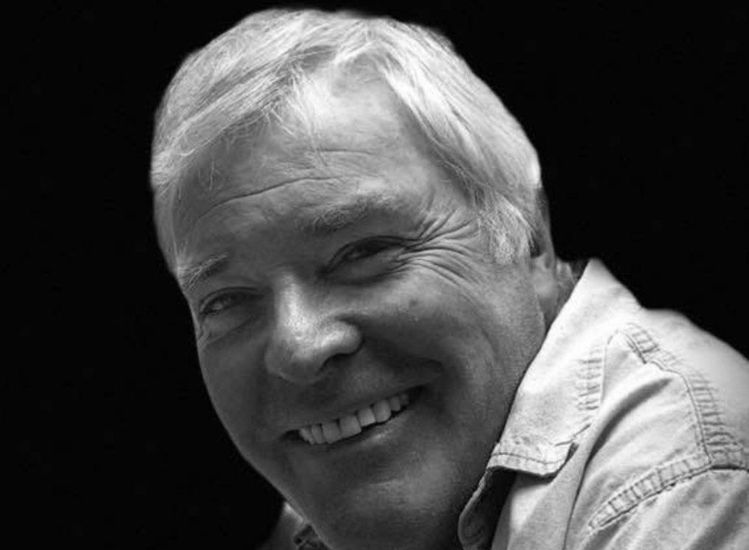“Ceol na nGael” producers Maura Monahan, left, and Maggie Dolan.
Music Notes / By Colleen Taylor
We are currently living under a paradox of community. On the one hand, the world has never been more united—from Mumbai to Moscow to Michigan, people are facing the same threat and similar challenges. And yet, our networks have become parochial in a way humanity hasn’t seen for 100 years. A few months ago, people were jet-setting and busily moving from city to city, but now our realm of exploration spans a few short miles—in my case in Dublin, a mere two kilometers.
An unintended but not necessarily unwelcome outcome of our restricted movement is a closer relationship with history; more specifically, the ability to empathize with an experience of immigration previously inconceivable to us. Under lockdown, the distance between Dublin and New York seems far more vast and the journey all the more final. As such, we suddenly have new imaginative access to what life might have felt like for an immigrant leaving Clare for Brooklyn in the late 19th century—the fear, the sadness, the resolve. All those immigrant songs—“From Clare to Here,” “Galway Bay,” “The Town I Loved So Well,” “Paddy’s Green Shamrock Shore”—suddenly reverberate with new profundity.
Amidst all this change and uncertainty, four young Irish-Americans are ensuring New York hears those songs each and every Sunday. I’m talking, of course, about “Ceol na nGael” (“The Music of the Irish”) on WFUV, and its current stewards: producers Maggie Dolan and Maura Monahan, former hosts themselves, and current student hosts Ryan Slattery and Patrick Green
In the 1970s, when New York was vibrant and crowded with Irish emigres and first-generation Irish Americans—descendants of the 1950s wave of Irish immigration—two Fordham students established an Irish music radio program that soon became a public representative voice of the city’s diasporic culture. What started out as a way to preserve tradition from back home in Ireland soon became a unique New York tradition in its own right. Producer Maggie Dolan finds joy in hearing from listeners who have normalized “Ceol na nGael” into their Sunday routines. They tell her things like: “I've been listening all my life. I go to Mass in the morning, come home and turn ‘Ceol na nGael’ on" or "My family and I always listen to the show before all having dinner together on Sunday evening.”
For over 40 years, Ceol na nGael has been broadcast live from Fordham’s Rose Hill campus in the Bronx every single Sunday, making its way into kitchens in Woodlawn down to the beach in the Rockaways. But, as with so many other traditions, 2020 saw that long-standing run come to an end when Fordham closed its campus and its radio studio. But Dolan and Monahan quickly adapted so that, true to the show’s motto, they could keep the “Ceol na nGael” tradition alive, despite growing dangers in New York City.
Composing a radio program virtually is a much more involved process than the typical live air: Monahan had to learn two new recording programs and manage Zoom audio. Each week, hosts Ryan and Patrick compile meticulously-timed playlists, send them to Monahan and Dolan, who then record the audio commentary from the hosts via Zoom then edit the show into a perfect four hours. It’s a time-consuming process, but one the team at “Ceol na nGael” feels duty-bound to perform.
While this new virtual recording process is very new for “Ceol na nGael,” and for radio generally, the service provided is as old as Irish immigration itself. As far back in history as the Flight of the Earls, music has been the balm and the voice of the Irish during times of despair, and now, in 2020, Ceol na nGael is ardently partaking in that same practice.
Both Dolan and Monahan speak of their work with “Ceol na nGael” as a vocation and inheritance, which now more than ever they feel committed to uphold. “We owed it to [our listeners] to be back up and running during these hard times and hopefully, for four hours every Sunday, [we can] provide some continuity, peace, and happiness,” Dolan said. Monahan sees the extra hours she spends producing the show under lockdown as a return for all the support the Irish-American community has given her over the years: “Responses from our listeners have made me much more conscious of the importance of having a constant, like ‘Ceol na nGael,’ to help all of us ground ourselves in the good and feel connected to the Irish-American community that has supported us all, each in our own ways, throughout our lives.”

“Ceol na nGael” hosts Patrick Breen, left, and Ryan Slattery in the studio in normal times.
“Grounded in the good” might work as Ceol na nGael’s new, unofficial motto—second to the long-standing “keeping the tradition alive.” The producers and hosts are intent on providing hope and connection to their widespread community of 75,000 listeners. Host Ryan Slattery, for example, has spent much of his time under lockdown discovering new music with his listeners in mind: “I try to select music that will help those who are listening to feel joy and hope.”
Requests are another priority for the CNG team: “At a time like now, when we can’t physically be together and either celebrate or mourn, we find that requests and dedications [sent in by listeners] are a way to stay connected to one another,” Dolan explained. Dolan, Monahan, Slattery, and Breen are staying extra-connected to listeners through Facebook and Twitter, while trying to give struggling Irish musicians extra exposure by publicizing Facebook live concerts and original compositions available at tune.supply. The team of four is also very conscious of the frontline healthcare workers and their long-time supporters in the FDNY, NYPD, postal service, and so many other active professions—for whom they play the tunes each Sunday.
Although not on the “frontline,” the team at CNG is providing a very valuable, necessary service and an even more vital message of hope. If the world outside has become a scarier place, the space inside, by the radio, has become a forum where community and culture can reconnect despite mandated distance, where the disparate members of the Irish-American community can reassure one other in the joint process of listening, sending in a request, or simply tapping one’s toes to a lively jig.
There is, after all, a reason that people still talk about FDR’s fireside chats: a voice which may be far away can feel all the nearer through the soothing, familiar format of a radio program. Furthermore, as news stories get more nationalistic, “Ceol na nGael” keeps a consistent link with Ireland, with the musicians and news back across the Atlantic, so that we might not feel so far apart. At the end of the day, Ceol na nGael is a music program, but it also contributes a far more significant service. The show models how to maintain emotive links with people and places far away, whom you may not see for a long time.
When I hosted “Ceol na nGael” myself back in 2009 to 2012, I viewed my four hours on Sunday as a journey into the past. There was something anachronistic about the show then: two young college students playing music that had been popular in Ireland back in the 1950s, in some cases far longer than that. Our most frequent callers were those from the greatest generation with requests for songs like “Rose of Tralee” or “Pretty Little Girl from Omagh.” On air, we spoke of immigration and the GAA and the lyrics to those old songs with an eye turned backward, nostalgically invoking a bygone way of life amidst the tunes we played.
For me, CNG has always been a practice in historical preservation—and it still is. But I think this changed world we are living in now—that global paradox I started with—has made a show like “Ceol na nGael” more relevant and resonant than ever before. As Dolan and Monahan have made clear, “Ceol na nGael” today is less about preserving cultural history and more about preserving ourselves through this current crisis.
With any luck, this pandemic will pass in a year, and we will return to some form of our globalized, transatlantic way of life. But the story “Ceol na nGael” tells will no longer be a thing of distant ancestry, recited by grandparent to distracted grandchildren. It will be a recent memory and an ongoing reminder of how a community or a song can offer solace from longing, from uprootedness, and from grief.
If you’re feeling nostalgic, thinking about the past, or, more importantly, looking for a community, tune in to 90.7 FM or wfuv.org this Sunday. Connect with the CNG team and send them your requests via Facebook or irish@wfuv.org. You may just hear the very sound you’re looking for.










